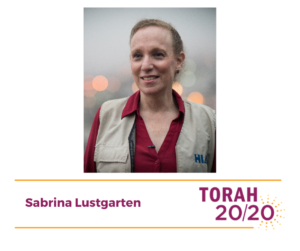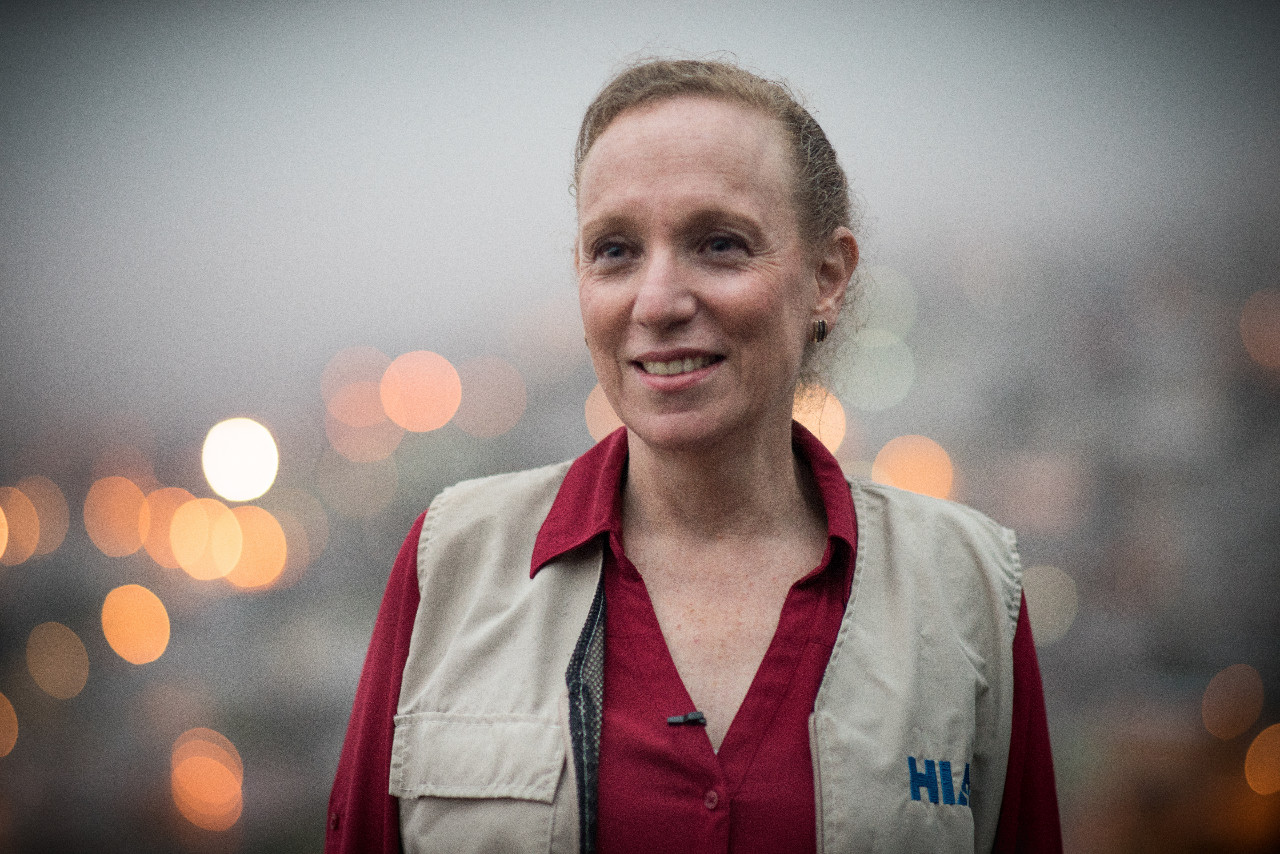A d’var Torah for Parshat Vayakhel-Pekudei from Sabrina Lustgarten, offered in celebration of HIAS National Refugee Shabbat.
In Parshat Vayakhel, people donate, abundantly, the materials required for the construction of the Mishkan (Tabernacle). They bring gold, silver, and copper; wool dyed blue, purple, and red; goat hair, linen, animal fur, wood, olive oil, herbs, and precious stones. Additionally, Moshe provides the Israelites with a report, similar to an “accounting book,” of everything that was donated to the Mishkan.
The concept of “Kehillah,” congregation — which is precisely what Vayakhel means — stands out in the parshah. Moshe asks his congregation to build the Mishkan. He addresses a congregation with common values, goals, and objectives.
It is interesting to reflect on this concept and how a community can be a main example of the importance of harmonizing wills to achieve a common good. The most important and difficult tasks that we face every day are solved only when we find, within the community, the necessary echo that allows us to agree to be guided by a leader in whom we bestow our trust — because of his merits — to proactively lead the necessary cohesion and unity of its members.
If we think about it, we are talking about basic principles of democracy. Even if the parshah does not detail how the congregation reached an agreement, we know its members were convinced of its purposes, because they gave their offerings with a free will.
Two artisans were appointed by God to lead the construction of the Mishkan: Betzalel ben Uri from the Judah tribe and Oholiav ben Ahisamach from the Dan tribe. The first was an “aristocrat.” His tribe was born of Leah, wife of Jacob. The second came from Dan, a tribe born of one of Jacob’s concubines. However, God did not see their origins but their capabilities and their virtues.
This is also how we must proceed: No matter where we come from, we all have rights and the potential to contribute if we are given a chance. At HIAS, our day-to-day work with refugees is basically that: We work to help refugees develop their potential when they arrive in the country, after they have been dehumanized by violence and are paralyzed by fear and no longer believe in their virtues and what they are. Our job is to restore or rescue their voice so that it resurfaces in the community that welcomes them, giving refugees the opportunity to give their best in their new communities.
It is about restoring the dignity that has been stolen from them, reinforcing their sense of belonging, and thus claiming their worth within a community. We strive to strengthen community networks in the host country and work to help refugees gradually become part of that host community.
But how can we encourage participation? I believe that participation is built precisely with the contribution of each person, but it should be based on tolerance, on the genuine intention for doing good. And to achieve this, education plays a very important role. It is only when values precede an action, when civic education drives our conduct, that we are truly willing to listen, share, and help.
That is the greatest challenge of education and therefore also the breeding ground for community participation. We are educated not only to create and defend our own ideas but also to listen, to be tolerant, and to reconcile differences, to understand and welcome the stranger as one of our own. We are educated to work together and cooperate. It is only in this context that a community succeeds in having the true maturity to accept, adapt, accommodate, yield, and adjust what is necessary, rather than divide and separate.
What our field teaches us is that working with host communities is fundamental to preventing discrimination and xenophobia towards the refugee population. So the job we have is to educate these communities about what refuge means and help them understand those fleeing conflict, because only then can the right social environment be created, in which inclusion is truly achievable.
Inclusion mirrors understanding and empathy for refugees and is the basis on which, through resilience, refugees can walk together with organizations that support them and make their burden lighter. That is why, as Jews, because of our history and origin, because of our journey through forgiveness and resilience, we can put ourselves in the shoes of others and welcome with chesed those who need it.
In this journey of living, each one of us is exposed to different situations. To look for growth and for making the world a better place based on the harmonious and consensual sum of individual contributions, while overcoming differences, is a challenge that we must all demand from ourselves. Diversity and inclusion is what enriches and enhances our communities. Examples of successful inclusion have a multiplier effect that calls for joining and taking part in other future initiatives. This is the way.
Sabrina Lustgarten is a strong advocate for human and refugee rights who has worked 17 years as Country Director for HIAS in Ecuador. Sabrina holds a Master’s degree in Management for Social Development and has led the implementation of the largest psychosocial and economic inclusion programs for refugees in Ecuador. From 1999 to 2003, Sabrina was the Director of the Jewish Community in Ecuador.
Special thanks to Raquel Nuchi for help with editing and Ximena Gomez for translation from Spanish to English.


